I first experienced what has become known as “contemporary worship” in the early nineties. It was so very different. I loved it. The whole premise of seeking God with abandon and using immediate and personal language was powerful for me. Worship was vulnerable and spontaneous. Without fully being aware of it, the Lord was unraveling years of religious performance and transforming my heart in radical ways.
My career eventually led me to LifeWay Worship. LifeWay is a publisher that produces music more for the Baptist churches I grew up in than the charismatic congregation I am now a part of. I spoke with worship pastors from all over the country as part of my job. I quickly learned that church music had drastically changed in those churches of my childhood. As a matter of fact, worship had changed in protestant churches of almost every denominational stripe. It seemed that they all wanted on the contemporary train.
Yet some people hated it. “How could anyone not like contemporary worship?” I remember thinking. Then I experienced what they were referring to. I quickly discovered that their context for a “contemporary worship service” was not the same as mine. “Oh,” I thought. “No wonder they hate this. I do too.”
Some complained that the songs lacked depth, (“we’re missing the great theology of hymns”) that the songs were too repetitive, (“these are ‘7/11’ songs; you know, take the same 7 words and sing them 11 times”) and the rhythms too difficult to follow. Others lamented the loss of the hymnal (“a whole generation will grow up in church and never be exposed to written music”).
These criticisms have merit and should be considered. However, I believe they often mask the real problem. When a worship service (i.e. the prepared plan) fails to connect and engage the congregation, the issue is not likely to be song choice or music style, but poor worship leadership. This leadership comes from either the worship leader (the guy on the stage) or the pastor (his boss) or both.
To be clear, as worshipers, we choose to worship. Regardless. However, as leaders we should do everything we can to make the experience clear and easy to engage. I have not always done this well and am still learning. I do not have all of the answers, but my experience has allowed me to make some observations. I plan on sharing these in subsequent posts. But first, I’d like to hear from you.
Questions:
- Drawing from your own experiences, what makes the most effective worship leading? I’m not necessarily talking about which songs are used. In fact, your answer may not have anything to do with music.
- Drawing from your own experiences, what are barriers to your engagement in a worship service?
*P.S. Be kind. We’re all on a journey and are still learning. Please do not name names unless you are commending them. I have the right to remove any comment that I find disrespectful.
*P.S.S. I’ve since written more on this topic. Click here to see other related posts.
23 Comments
Leave A Comment
Read my comment policy.


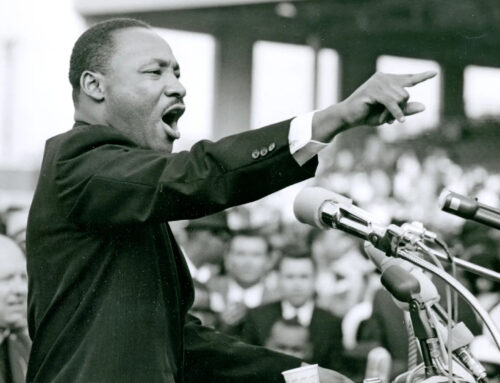

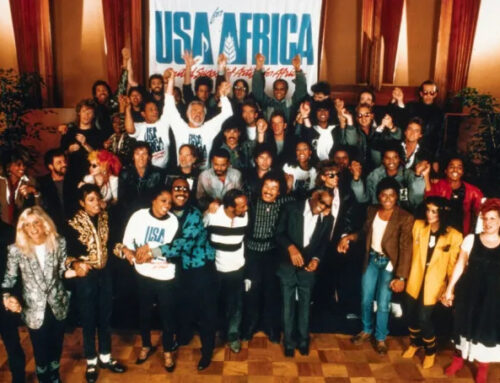

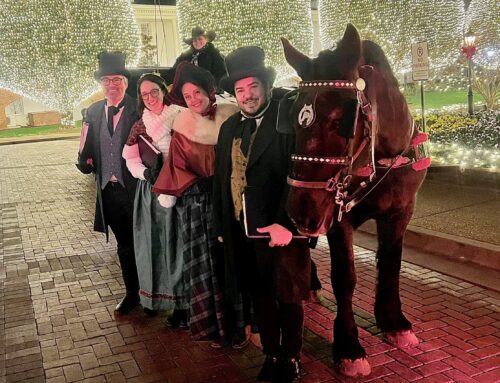
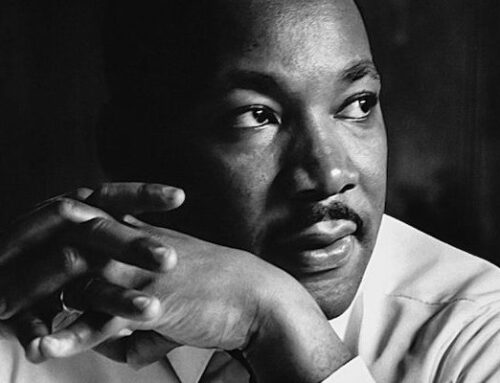


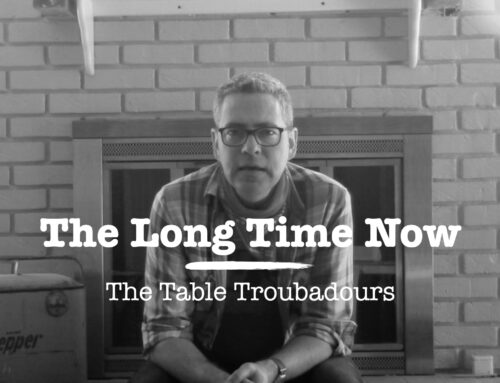

1) For me effective worship leading occurs when our heart is right with God. I’ve learnt that the worship leader is the first worshiper. I find that I am at my best when I have spent time with the Lord beforehand in prayer and the reading of His word. Sin hinders worship and as such I believe it is important for worship leaders to spend time in repentance before leading God’s people in worship. When we do this we are not only refreshed but more in tuned with the Holy Spirit.
2) Some barriers to my engagement from the perspective of being in the congregation would definitely have to be the level of preparedness spiritually and otherwise of the worship leader. There are Sundays when it feels as if we are being guided to sing songs rather than worship. Another barrier is disorganization, when the worship leader and the band are not working together leads to chaos and confuses the audience.
Excellent, Dale. Thanks for commenting.
1) For me effective worship leading occurs when our heart is right with God. I’ve learnt that the worship leader is the first worshiper. I find that I am at my best when I have spent time with the Lord beforehand in prayer and the reading of His word. Sin hinders worship and as such I believe it is important for worship leaders to spend time in repentance before leading God’s people in worship. When we do this we are not only refreshed but more in tuned with the Holy Spirit.
2) Some barriers to my engagement from the perspective of being in the congregation would definitely have to be the level of preparedness spiritually and otherwise of the worship leader. There are Sundays when it feels as if we are being guided to sing songs rather than worship. Another barrier is disorganization, when the worship leader and the band are not working together leads to chaos and confuses the audience.
Excellent, Dale. Thanks for commenting.
Jeff gave some specific suggestions that truly are excellent; I love “look out and up”!
My own experiences are from a lifetime of attending churches in many denominations– from episcopal to pentecostal. This was because of changes in location in my childhood and adult life, as well as my own search for a church I could feel comfortable in (in recent years).
One worship experience I remember that really didn’t work for me was when for whatever reason nobody around me was singing– there was a worship team up front and smallish tv-like screens with lyrics, but the congregation either was just watching or just mouthing the words. This felt really strange to me– I want to be a participant, not a spectator.
Am so grateful to have found the church I attend now. It is a small presbyterian congregation, with a great balance of formality and informality. But the issue of contemporary vs traditional has definitely been an issue at this church, as I think it is or has been throughout America. We tried having a joint service with some of both types of music, but the fans of contemp music stopped coming, and those in favor of traditional music also complained. So went back to two different types of services. I agree with the idea that hymns should be included in contemporary worship, so I think they are kind of missing out there . . . but I do really enjoy the prolonged singing time given during the contemp service. The traditional one has only two songs for the congregation to sing (I told them they ought to at least have three, but they said they had to fit it in the timeframe and the pastor didn’t seem to like my idea of making a shorter sermon 🙂 But the traditional service does have some choir songs, which fits in with David’s mention of “listening worship”– our church has been blessed with a very gifted choir director as well as choir members, and listening to them truly brings a different dimension to the worship experience.
I also agree with David that worship IS about us . . . (it’s just not ALL about us).
I think for the music education aspect, most churches just have to take what they can get for the musical skill of the worship leaders . . . a lot of churches have volunteer musicians, though sometimes a pianist or organist is paid. But there are opportunties for church musicians to seek improvement in skills, or they could get special trainings if this is a priority to the church leadership. Even my very small (under 100 members) church has sent our choir director to some national conferences, to learn more about resources and hone her skills.
Jeff gave some specific suggestions that truly are excellent; I love “look out and up”!
My own experiences are from a lifetime of attending churches in many denominations– from episcopal to pentecostal. This was because of changes in location in my childhood and adult life, as well as my own search for a church I could feel comfortable in (in recent years).
One worship experience I remember that really didn’t work for me was when for whatever reason nobody around me was singing– there was a worship team up front and smallish tv-like screens with lyrics, but the congregation either was just watching or just mouthing the words. This felt really strange to me– I want to be a participant, not a spectator.
Am so grateful to have found the church I attend now. It is a small presbyterian congregation, with a great balance of formality and informality. But the issue of contemporary vs traditional has definitely been an issue at this church, as I think it is or has been throughout America. We tried having a joint service with some of both types of music, but the fans of contemp music stopped coming, and those in favor of traditional music also complained. So went back to two different types of services. I agree with the idea that hymns should be included in contemporary worship, so I think they are kind of missing out there . . . but I do really enjoy the prolonged singing time given during the contemp service. The traditional one has only two songs for the congregation to sing (I told them they ought to at least have three, but they said they had to fit it in the timeframe and the pastor didn’t seem to like my idea of making a shorter sermon 🙂 But the traditional service does have some choir songs, which fits in with David’s mention of “listening worship”– our church has been blessed with a very gifted choir director as well as choir members, and listening to them truly brings a different dimension to the worship experience.
I also agree with David that worship IS about us . . . (it’s just not ALL about us).
I think for the music education aspect, most churches just have to take what they can get for the musical skill of the worship leaders . . . a lot of churches have volunteer musicians, though sometimes a pianist or organist is paid. But there are opportunties for church musicians to seek improvement in skills, or they could get special trainings if this is a priority to the church leadership. Even my very small (under 100 members) church has sent our choir director to some national conferences, to learn more about resources and hone her skills.
Thank you for your post and your invitation to comment, Jonathan. I track with what John was saying. I think the key for me is to engage with the people in the room. It goes a long way toward authenticity and understanding the corporate nature of what I’m doing (and is awfully hard to do in a dark room, btw). When I realize who is in the room – the young mother I know just had a miscarriage, the family that has walked through some joblessness and hardships financially, my mentor who gives me encouragement every time he sees me – I begin to sing to and with them. The words of the songs come alive corporately, whether they are meant to be sung to one another or whether they are a unified prayer to God.
It’s very easy, especially for younger worship leaders who are just learning the ins and outs, to get caught up in their own world of chords, notes, technicalities and self-consciousness. I think this adds to the “he’s having an experience up there, but I have zero connection to it” feel. The more we make all that stuff second nature (and ask God to help us pay attention to others and not ourselves), the easier it is to actually engage with the people in the room as we lead.
My pastor puts it this way – “Be present. Have a presence up there. Look out and up, not in and down.”
Biggest distractions for me are underperformance (sloppy playing), over performance (too many notes or flashy), and over communication (saying too much from stage, especially if it’s not prepared). Be an excellent and intentional musician and a present worship leader. These things will go far to help your people engage with each other and with God.
Excellent thoughts, Jeff. Thanks for sharing.
Thank you for your post and your invitation to comment, Jonathan. I track with what John was saying. I think the key for me is to engage with the people in the room. It goes a long way toward authenticity and understanding the corporate nature of what I’m doing (and is awfully hard to do in a dark room, btw). When I realize who is in the room – the young mother I know just had a miscarriage, the family that has walked through some joblessness and hardships financially, my mentor who gives me encouragement every time he sees me – I begin to sing to and with them. The words of the songs come alive corporately, whether they are meant to be sung to one another or whether they are a unified prayer to God.
It’s very easy, especially for younger worship leaders who are just learning the ins and outs, to get caught up in their own world of chords, notes, technicalities and self-consciousness. I think this adds to the “he’s having an experience up there, but I have zero connection to it” feel. The more we make all that stuff second nature (and ask God to help us pay attention to others and not ourselves), the easier it is to actually engage with the people in the room as we lead.
My pastor puts it this way – “Be present. Have a presence up there. Look out and up, not in and down.”
Biggest distractions for me are underperformance (sloppy playing), over performance (too many notes or flashy), and over communication (saying too much from stage, especially if it’s not prepared). Be an excellent and intentional musician and a present worship leader. These things will go far to help your people engage with each other and with God.
Excellent thoughts, Jeff. Thanks for sharing.
Hey Jonathan –
I certainly applaud the move toward more authentic, less performance-based worship. I think that’s somewhat happened, but my concerns are where its degenerated in a few areas:
1 – The worship leader is a performer, like it or not. As I’ve visited several churches over the last 10 years or so, I see a big dramatic move toward an “Its not about me….” frame of thought from the worship leaders,- but in truth – it’s ALL about them. They are the only ones who voice any solo or spoken thought. They disparage allowing others to be used in any solo capacity – decrying that to do so would be some form of self-promoting, idolatrous arrogance. So subsequently the ONLY person who has a voice in the worship is the self-proclaimed (and often insecure) “leader”. And – just to take a stance here – worship IS INDEED ABOUT US. It’s about the relationship WE share with the God who loves and created us. It’s an immature stab at false “authenticity”. It sounds very spiritual, but rings hollow.
For example: As a parent – Would you tell your child that his participation in your family is Not about him, its only to lift you up? I don’t think so. Think about it!
2 – I’m alarmed at the lack of musical education and vision to build for the worship program’s future in churches today. Pastors want to hire hip, cool-looking, (yet highly inexperienced) 20- somethings to make their services look something like a “Passion” conference. Trouble is – there’s little or no thought given to really teaching people how to sing & play well, how to sing as a group, how to (do I dare say) perform with excellence in honor of worshiping God. There’s alot of “choral floundering” that’s covered up by the 4 voices on mic on praise team, who may sing a bit better, but – they’re left on their own to flounder as well. I guess while it may be “authentic” – it makes for some painful listening.
3 – Due to style changes – we’ve lost the concept of “listening worship”. Church music concept today is EVERYONE flailing away constantly. I really miss the powerful contemplation that can be brought by 1 excellent, heartfelt (dare I say) performance. Hear me – I’m ALL for EVERYONE getting to participate in worship throughout the service in some way, but seems to me that we’ve degenerated into a musical, adolescent “muck”. Everyone making noise, but no one really listening, contemplating, (dare I say) enjoying the music.
OK – end of rant – but these are some observations from a person who’s been involved professionally in worship & recording Christian music for about 30 years.
And just for the record – I’m not currently involved in the worship music program at my church. I got out last year. After many years of trying to help thru bringing up some of the concepts I’ve mentioned above, I was usually told that those things don’t matter, because its “Not about us, we’re not important here”. I finally decided that since its not about us, then it wasn’t important for me to show up anymore, so I backed out. I figure they can play a Chris Tomlin CD and no one will be seen that way.
Very thoughtful comments, David. Thanks for sharing. I agree with a couple of your points. I’ve noticed too the “muck” you’re referring to. The way I say it is that our worship times should “breathe;” which is to say it should have some margin for contemplation. But this takes skill and maturity, which alludes to your point about education. I agree with this wholeheartedly. I heard one of the Marsalis brothers say that in the beginning of a musician’s life, he learns how to play. But the really great, mature players have learned when not to play. There are many things I love about my own church, but we’re terrible at mentoring other musicians. The exception being the children’s choir and youth worship team directors. They’re awesome. But these are probably 5-6 adults out of church that probably has a couple hundred musicians. I hope that this fault is limited to Nashville and is not as systematic as you fear. I would add to your point that this is not only music education, but spiritual discernment and maturity as well.
As far as worship leaders disparaging others to sing solos, I haven’t experienced this myself. I think you might be painting worship leaders with too broad a brush in that respect. I do wish “performance” would stop being a dirty word, but disagree with your statement that worship is about us. I concede that it often is about us (leader and congregation alike), but it shouldn’t be.
I would love to hear some other thoughts on David’s comments. Remember, we’re not just taking stabs at a church’s music program, but asking for specific things that leaders do that either make for a meaningful worship environment or implement barriers to your own engagement in worship.
You raised some good points. I agree that worship leaders and teams must seek to improve and that in many churches little or no thought is given to helping persons improve their craft. However worship is NOT about us, I refuse to believe that it is, it is not even about the music. Sometimes we get so caught up in trying to sound our best and be technically perfect that we miss out on God. In Amos 5, God told the people of Israel that He would not hear their songs and beautiful music because their hearts were in the wrong place. The music and technicalities have their place, I do agree…but it is the heart that is important to God. It is also not about us because God doesn’t need us, the word of God says that if we don’t praise Him He will raise up the rocks to do it. We are not needed by God but He wants us, worship is an honor and a privilege. If it were about us then we would be equating our importance with God’s. I get where you are coming from however but I cannot with a clear conscience accept the notion that worship is about us.
Hey Jonathan –
I certainly applaud the move toward more authentic, less performance-based worship. I think that’s somewhat happened, but my concerns are where its degenerated in a few areas:
1 – The worship leader is a performer, like it or not. As I’ve visited several churches over the last 10 years or so, I see a big dramatic move toward an “Its not about me….” frame of thought from the worship leaders,- but in truth – it’s ALL about them. They are the only ones who voice any solo or spoken thought. They disparage allowing others to be used in any solo capacity – decrying that to do so would be some form of self-promoting, idolatrous arrogance. So subsequently the ONLY person who has a voice in the worship is the self-proclaimed (and often insecure) “leader”. And – just to take a stance here – worship IS INDEED ABOUT US. It’s about the relationship WE share with the God who loves and created us. It’s an immature stab at false “authenticity”. It sounds very spiritual, but rings hollow.
For example: As a parent – Would you tell your child that his participation in your family is Not about him, its only to lift you up? I don’t think so. Think about it!
2 – I’m alarmed at the lack of musical education and vision to build for the worship program’s future in churches today. Pastors want to hire hip, cool-looking, (yet highly inexperienced) 20- somethings to make their services look something like a “Passion” conference. Trouble is – there’s little or no thought given to really teaching people how to sing & play well, how to sing as a group, how to (do I dare say) perform with excellence in honor of worshiping God. There’s alot of “choral floundering” that’s covered up by the 4 voices on mic on praise team, who may sing a bit better, but – they’re left on their own to flounder as well. I guess while it may be “authentic” – it makes for some painful listening.
3 – Due to style changes – we’ve lost the concept of “listening worship”. Church music concept today is EVERYONE flailing away constantly. I really miss the powerful contemplation that can be brought by 1 excellent, heartfelt (dare I say) performance. Hear me – I’m ALL for EVERYONE getting to participate in worship throughout the service in some way, but seems to me that we’ve degenerated into a musical, adolescent “muck”. Everyone making noise, but no one really listening, contemplating, (dare I say) enjoying the music.
OK – end of rant – but these are some observations from a person who’s been involved professionally in worship & recording Christian music for about 30 years.
And just for the record – I’m not currently involved in the worship music program at my church. I got out last year. After many years of trying to help thru bringing up some of the concepts I’ve mentioned above, I was usually told that those things don’t matter, because its “Not about us, we’re not important here”. I finally decided that since its not about us, then it wasn’t important for me to show up anymore, so I backed out. I figure they can play a Chris Tomlin CD and no one will be seen that way.
Very thoughtful comments, David. Thanks for sharing. I agree with a couple of your points. I’ve noticed too the “muck” you’re referring to. The way I say it is that our worship times should “breathe;” which is to say it should have some margin for contemplation. But this takes skill and maturity, which alludes to your point about education. I agree with this wholeheartedly. I heard one of the Marsalis brothers say that in the beginning of a musician’s life, he learns how to play. But the really great, mature players have learned when not to play. There are many things I love about my own church, but we’re terrible at mentoring other musicians. The exception being the children’s choir and youth worship team directors. They’re awesome. But these are probably 5-6 adults out of church that probably has a couple hundred musicians. I hope that this fault is limited to Nashville and is not as systematic as you fear. I would add to your point that this is not only music education, but spiritual discernment and maturity as well.
As far as worship leaders disparaging others to sing solos, I haven’t experienced this myself. I think you might be painting worship leaders with too broad a brush in that respect. I do wish “performance” would stop being a dirty word, but disagree with your statement that worship is about us. I concede that it often is about us (leader and congregation alike), but it shouldn’t be.
I would love to hear some other thoughts on David’s comments. Remember, we’re not just taking stabs at a church’s music program, but asking for specific things that leaders do that either make for a meaningful worship environment or implement barriers to your own engagement in worship.
You raised some good points. I agree that worship leaders and teams must seek to improve and that in many churches little or no thought is given to helping persons improve their craft. However worship is NOT about us, I refuse to believe that it is, it is not even about the music. Sometimes we get so caught up in trying to sound our best and be technically perfect that we miss out on God. In Amos 5, God told the people of Israel that He would not hear their songs and beautiful music because their hearts were in the wrong place. The music and technicalities have their place, I do agree…but it is the heart that is important to God. It is also not about us because God doesn’t need us, the word of God says that if we don’t praise Him He will raise up the rocks to do it. We are not needed by God but He wants us, worship is an honor and a privilege. If it were about us then we would be equating our importance with God’s. I get where you are coming from however but I cannot with a clear conscience accept the notion that worship is about us.
In my experience, Jonathan, worship leadership that connects is authentic. It’s real. Regardless of the style. The congregation can sense, maybe even see, the movement of the Holy Spirit in the one(s) who is (are) leading them, and is drawn in to make themselves vulnerable to the Holy Spirit’s leading as well. In the same way that passion sells a secular performance, passion that is evident in the worship leader is compelling. The two things that frustrate me are when the passion appears manufactured or when the worship leader seems to be the only one in the room who is having a moment with the Holy Spirit. The first is disingenuous. The second shows a lack of awareness. Both are barriers to good leadership that must be addressed for anyone who leads.
On a personal note, I’m still amazed at the technology available in our world today that lets two old classmates from another time and place reconnect! And if you’re ever near north Texas and feel a prompting to hang out with a bunch of Methodists, don’t be a stranger!!
Blessings-
John McLarty
In my experience, Jonathan, worship leadership that connects is authentic. It’s real. Regardless of the style. The congregation can sense, maybe even see, the movement of the Holy Spirit in the one(s) who is (are) leading them, and is drawn in to make themselves vulnerable to the Holy Spirit’s leading as well. In the same way that passion sells a secular performance, passion that is evident in the worship leader is compelling. The two things that frustrate me are when the passion appears manufactured or when the worship leader seems to be the only one in the room who is having a moment with the Holy Spirit. The first is disingenuous. The second shows a lack of awareness. Both are barriers to good leadership that must be addressed for anyone who leads.
On a personal note, I’m still amazed at the technology available in our world today that lets two old classmates from another time and place reconnect! And if you’re ever near north Texas and feel a prompting to hang out with a bunch of Methodists, don’t be a stranger!!
Blessings-
John McLarty
Hey, John! I wondered if that was you when I saw your name. Good to hear from you again. You bring up some good points. How do you do this appropriately, this business of being aware of the room and not being disingenuous? I’d love to hear your thoughts on this.
And I’d love to hang out with you if I’m ever in north TX.
Hello
Thanks for sharing your experiences. Great post!!
I was reading a comment elsewhere this morning. The writer was lamenting the ‘fact’ that nowadays music does not honor God, and that we should go back to the hymns…. Quite an interesting statement, I think.
As you pointed out, as worshippers, we choose to worship. I believe God is able to meet us at the point of our needs. I am praying that He will be the director and recipient of the worship I offer, and that this offering would be a sweet smelling savor to Him.
Thank you do much for this post. I do not believe in coincidences. I’m glad I stopped by.
Blessings.
Ann
Thanks for reading, Ann. My best to you.
Hello
Thanks for sharing your experiences. Great post!!
I was reading a comment elsewhere this morning. The writer was lamenting the ‘fact’ that nowadays music does not honor God, and that we should go back to the hymns…. Quite an interesting statement, I think.
As you pointed out, as worshippers, we choose to worship. I believe God is able to meet us at the point of our needs. I am praying that He will be the director and recipient of the worship I offer, and that this offering would be a sweet smelling savor to Him.
Thank you do much for this post. I do not believe in coincidences. I’m glad I stopped by.
Blessings.
Ann
Thanks for reading, Ann. My best to you.